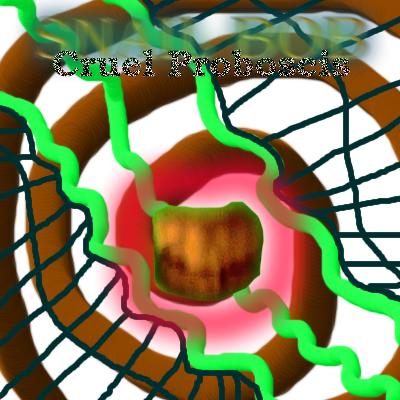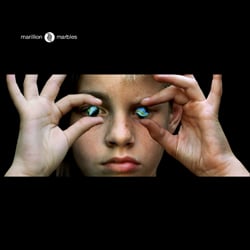Progarchives.com has always (since 2002) relied on banners ads to cover web hosting fees and all.
Please consider supporting us by giving monthly PayPal donations and help keep PA fast-loading and ad-free forever.
/PAlogo_v2.gif) |
|
Post Reply 
|
Page <1234 8> |
| Author | ||||||
mr.cub 
Forum Senior Member 

Joined: March 06 2009 Location: Lexington, VA Status: Offline Points: 971 |
 Posted: April 10 2009 at 11:45 Posted: April 10 2009 at 11:45 |
|||||
|
I believe what Daltrey was trying to say was that at that point in time, their was really nothing new The Who could produce. It was probably more an assessment of his own band than it was of rock music in general. Listen to Who Are You and you get lyrical themes from Townsend about the inevitability of complacent and rehashed ideas. Moon's death only quickened the inevitable for The Who. For the next 5 years they really went through the motions with no purpose other than playing in Moonie's memory.
As for the future of rock...well I have high hopes. And that fact that it will not be as popular as it once was only makes it more appealing. The artist will only become more honest and sincere as he will know his audience. Hence better music for all of us...but as you mention Mantis, it could work out for the worst in such a situation
|
||||||
 |
||||||
 |
||||||
Henry Plainview 
Forum Senior Member 

Joined: May 26 2008 Location: Declined Status: Offline Points: 16715 |
 Posted: April 10 2009 at 18:47 Posted: April 10 2009 at 18:47 |
|||||
I try.
Then what are you counting as rock?
I wasn't disputing that. But since nobody seems to be understanding each other at this point, I took that to mean that nothing interesting has happened in the past 30 years (which is a view some legitimately share, just talk to WalterDigsTunes), not that anyone is completely free of any influences/theft.
Yeah, after I posted it I realized I got it wrong. But he can still be making fun of them, they're almost as bad as KISS.
Huh, I thought you were talking about the evil labels and kids these days. I would attribute the fragmentation to the increasing availability of music that the labels and musicians are acting in response to. Which maybe is what you are saying? By the way, while I admit that Ornette Coleman isn't on a major label anymore, The Mars Volta, Mr Bungle, and Boredoms are. Edited by Henry Plainview - April 10 2009 at 18:57 |
||||||
|
if you own a sodastream i hate you
|
||||||
 |
||||||
Dean 
Special Collaborator 

Retired Admin and Amateur Layabout Joined: May 13 2007 Location: Europe Status: Offline Points: 37575 |
 Posted: April 10 2009 at 21:38 Posted: April 10 2009 at 21:38 |
|||||
|
Rock (& Roll) Music has been fragmented since the 1950s and has always been associated with one youth subculture or another - what has become more fragmented is not necessarily the music genres, but the subcultures that adopt the music as their anthem have become less defined - the music is less exclusive than it once was and the subcultures are less selective about what they listen to. This, I believe, is more like the situation in the 1970s.
What is, and what is not, "popular" was once dictated by the relative popularity of those subcultures within the youth population (Teds, Greasers, Mods, Rockers, Hippies, Freaks, Skins etc.) - Conversely Prog was popular in the 70s because the youth scene at that time was receptive to it even though there wasn't a distinct subculture to support it - Prog was probably the only music movement where the 'subculture' was the music and not the dress-code. It was popular because the alternatives were unattractive to "single-white-teenage males" and the Mainstream was too 'safe' and too far removed from youth music.
That balance tipped back in the 80s, kick-started by Punk, which provided a complete package, with an ideology and identity that those people could connect with, relate to and buy into (ironically for a movement whose battle cry was I, Individual), and although it never became mainstream, it spurned a whole range of styles that were and lead to an increase in music-related subcultures that lasted well into the 1990s.
Now, youth no longer holds dominion over what is popular - the album charts reflect more what older people are buying than any measure of what the latest youth movement is and the Mainstream is less clearly defined now than the underground music scene because of that, the people that buy it are not of a fixed demographic and do not belong to a specific subculture - they simply buy what they like. It is not so much fragmentation than dilution - now buying trends are governed more by Amazon availability and recommendations than chart position - the buying public will pick and chose from a broader selection of music. The predominant feature of that particular demographic is they are not early adopters, they are buying what they are use to and not exploring new music - that is still the prerogative of teenagers and slightly older youths (ie anyone between 10 and 30).
So, the point I'm getting to is that the future of Rock and Roll (as we define it) is not dictated so much by the music industry or even album sales and popularity, but by the teenagers that buy into it, and they have an amazing knack of rebelling, rejecting trends and going against the swim. Over a short time period successive generations give the impression that they are adopting the music as it evolves but that is because there is no defined break between generations - the whole concept of generations is artificial - my "generation" spanned Psychedelia, Prog, Glam, Punk, New Wave, NWOBHM, New Romantic, Neo Prog and Goth. Music evolves in steps, often driven by technology or social change, any musician who produces music for a specific subculture or genre is an evolutionary throw-back, they may be the present, but they're not going to be the future of music.
At the moment those future teenagers who will be setting the future trends currently think that 'The Wheels On The Bus' is a pretty good song, we have no way of predicting what they will latch onto and adopt as their own.
|
||||||
|
What?
|
||||||
 |
||||||
hermosotrozo 
Forum Newbie 
Joined: December 04 2008 Status: Offline Points: 22 |
 Posted: April 12 2009 at 17:14 Posted: April 12 2009 at 17:14 |
|||||
|
i would say the future of rock is really good! with so many new bands coming in almost daily with strong music and lyrics, so it cant be bad. quality is a thing which we can discuss later
|
||||||
 |
||||||
darkshade 
Collaborator 

Honorary Collaborator Joined: November 19 2005 Location: New Jersey Status: Offline Points: 10964 |
 Posted: April 12 2009 at 22:26 Posted: April 12 2009 at 22:26 |
|||||
|
i think because there are so many years of recordings out there now, especially compared to the 60s and 70s (even the 80s) and much easier access to them that people could be turned onto ANYTHING and i think within the next few years, we'll start to see something extraordinary in music (may it be rock or not, though it'll probably somewhat rock-influenced)
|
||||||
 |
||||||
AlbertMond 
Forum Senior Member 

Joined: December 27 2008 Location: Namibia Status: Offline Points: 139 |
 Posted: April 12 2009 at 23:01 Posted: April 12 2009 at 23:01 |
|||||
I actually don't mind New Wave, Electronica, or even Disco that much. What truly irks me a bit, though, is when it feels like electronic music is trying to replace non-electronic. And in the worst way, too. A lot of rappers don't even make their own beats, now. Not everybody will agree with me, I guess, but I think rap used to be something great. Some underground rap is still alright, but most rap is nothing more than glorified retardation. Just look at Soulja Boy! But I'm getting off topic.
I liked it better back when synths were used to make synth sounds. Now they've got synths that sound like guitars, and not just a little bit! People write songs, think "This is gonna be a hit!", go into some big studio, have all the 'rock' instruments and a million effects generated on a computer, and they wail about how 'you' left them. Then the 'tr00 rock fans' look at it and sneer at the 'tr00 rap fans': "This is why our music is better! It's more real!"
Of course, everybody can afford this kind of thing, now. So you've got a million basement karaoke tracks flowing out. It's not hard to make an electronic beat. It's not hard to make one that sounds 'deep', 'catchy', or 'experimental'. You don't have to put your heart into it, nor do you even have to put time into it, or even a message. You don't have to be able to play it live, or improvise. Frankly, it's been done to death. Take groups like Brokencyde. Take substandard techno and generic post-hardcore and what do you get? A loyal cult following if you're these dum-dums.
|
||||||
|
Promotion so blatant that it's sad:

|
||||||
 |
||||||
Toaster Mantis 
Forum Senior Member 

Joined: April 12 2008 Location: Denmark Status: Offline Points: 5898 |
 Posted: April 13 2009 at 02:45 Posted: April 13 2009 at 02:45 |
|||||
Not quite. What you mention is a factor too, and I did say in the OP that internet distros had made things much easier for the small labels, but that wouldn't matter if there wasn't an entire generation of rock musicians who think "screw it, we don't even want to appeal to normal people". By the way, you forgot that I also said that the idea of good music having to be strictly avant-garde precedes the mid-1970s punk explosion and the music industry's reaction to it. It didn't just begin taking hold that much until then... and if I sound like I'm complaining about it, I apologize for the misunderstanding because I don't want to pass judgement on this development. Hell, it might be a good thing since it could rid us of some of the swine in front of the pearls or a sign of artistic integrity that you don't make any concessions to appealing to the mainstream. As I said, though, I'm not really sure.
Yeah, but are the Boredoms, Mister Bungle or even the Mars Volta as popular today as Yes were in 1973? I'm sure most people who aren't into experimental/progressive music haven't even heard of the Boredoms, or any noise rock band that isn't Sonic Youth.  |
||||||
|
"The past is not some static being, it is not a previous present, nor a present that has passed away; the past has its own dynamic being which is constantly renewed and renewing." - Claire Colebrook
|
||||||
 |
||||||
Toaster Mantis 
Forum Senior Member 

Joined: April 12 2008 Location: Denmark Status: Offline Points: 5898 |
 Posted: April 13 2009 at 03:14 Posted: April 13 2009 at 03:14 |
|||||
The situation in the 1970s you describe looks like a historical anomaly to me since progressive rock originated within the freak/hippie subculture of the 1960s, but managed to (somewhat) dissociate itself from it when that movement crashed and burned in the early 1970s.
This is not the impression I get at all, but maybe that's because I have my music-subcultural background within the metal scene, and metal has always been critical of not just mainstream society but also other subcultures. This began with Black Sabbath criticizing the hippie movement in Hand of Doom, Faeries Wear Boots, Children of the Grave, Under the Sun and Megalomania. It might have tempered a bit with metal beginning to absorb influences from punk and gothic rock through the 1980s and 1990s respectively, but a lot of us metalheads are still at least suspicious towards other kinds of obscure rock music. I also get the impression that a lot of punk bands were initially disillusioned with the previous counterculture too, maybe not to the same extent as metal but still. |
||||||
|
"The past is not some static being, it is not a previous present, nor a present that has passed away; the past has its own dynamic being which is constantly renewed and renewing." - Claire Colebrook
|
||||||
 |
||||||
Toaster Mantis 
Forum Senior Member 

Joined: April 12 2008 Location: Denmark Status: Offline Points: 5898 |
 Posted: April 13 2009 at 03:25 Posted: April 13 2009 at 03:25 |
|||||
Neither do I.
This happens to pretty much any genre which becomes a fad, with breaks given to lots of acts many of whom are substandard and don't really deserve the exposure, with those that are harder to market because they don't fit the stereotype sometimes getting left behind. It's just easier for this to happen in some genres than others. However, I'm sure that 20 years from now Soulja Boy will be looked at the same way we look at MC Hammer or even Milli Vanilli today. 
Didn't they have guitar synths back and overdone digital production back in the 1980s too?  Then there was a revolt against that in the 1990s. It seems like this is a cyclical thing that's actually a separate phenomenon from electronic music taking over guitar rock's place in the sun. Then there was a revolt against that in the 1990s. It seems like this is a cyclical thing that's actually a separate phenomenon from electronic music taking over guitar rock's place in the sun.
In the "defense" of Brokencyde (scare quotes intentional  ), I don't think that band is meant as more than a joke and I hope most of their fans take it that way. If they don't... ), I don't think that band is meant as more than a joke and I hope most of their fans take it that way. If they don't...      |
||||||
|
"The past is not some static being, it is not a previous present, nor a present that has passed away; the past has its own dynamic being which is constantly renewed and renewing." - Claire Colebrook
|
||||||
 |
||||||
Dean 
Special Collaborator 

Retired Admin and Amateur Layabout Joined: May 13 2007 Location: Europe Status: Offline Points: 37575 |
 Posted: April 13 2009 at 04:31 Posted: April 13 2009 at 04:31 |
|||||
To some extent the hippy culture endured throughout the Prog era, though much reduced and more underground, in trippy "Head music" and as some middle-class parody in New Age. There was always some element of post-hippy to Prog but it wasn't all beads and kaftans. I still think the current "scene" is closer to the 70s with partisan attitutes towards music being of secondary importance - people are more receptive to other forms of music and less inclined to align themselves with any one single subculture today.
I think the same thing happened in the Gothic subculture from the 80s and in the resurgence of the 90s - they were also suspicious towards other forms of rock music, especially Metal (I recall Daniel Ash of Bauhaus being lambasted for getting a bit too metal in his guitar playing in the 80s and Carl McCoy being criticised for producing a Black Metal album with The Nefilim in the 90s), but as time progressed and Metal bands started absorbing Goth Rock influences that partisan attitude lessened. There is still some unease between Metal and Goth, but I think the two are a lot more receptive than they once were. (Having said that, Goths will always be wary of younger gothic-flavoured trends like nu-metal, spooky kids and emo - not because of the music, but for the audacity of these young upstarts that adopt the dress-code and ignore the history
|
||||||
|
What?
|
||||||
 |
||||||
Slartibartfast 
Collaborator 

Honorary Collaborator / In Memoriam Joined: April 29 2006 Location: Atlantais Status: Offline Points: 29625 |
 Posted: April 13 2009 at 04:41 Posted: April 13 2009 at 04:41 |
|||||
|
Rock music is so ingrained in our western culture that it will probably be with us as long as our culture is around. It is certainly an evolutionary beast...
By the way, has straight jazz or classical run its course or have I not been paying attention? Edited by Slartibartfast - April 13 2009 at 04:44 |
||||||
|
Released date are often when it it impacted you but recorded dates are when it really happened...

|
||||||
 |
||||||
debrewguy 
Special Collaborator 
Honorary Collaborator Joined: April 30 2007 Location: Canada Status: Offline Points: 3596 |
 Posted: April 13 2009 at 11:39 Posted: April 13 2009 at 11:39 |
|||||
DB - actually Gay Jazz has taken over, and clerical is the new classical (music made by bureaucracies) |
||||||
|
"Here I am talking to some of the smartest people in the world and I didn't even notice,” Lieutenant Columbo, episode The Bye-Bye Sky-High I.Q. Murder Case.
|
||||||
 |
||||||
lazland 
Prog Reviewer 

Joined: October 28 2008 Location: Wales Status: Offline Points: 13240 |
 Posted: April 13 2009 at 12:12 Posted: April 13 2009 at 12:12 |
|||||
|
Rock, or rock n roll, will never die. Kids, and I mean angry teens and young people in general, will always want to listen to bands or artists who confirm to them their worldview that the arseholes running the show suck and there is a better way - it's why punk took off, mod before that, Presley before that. Its the rebellion thing, and a loud noise doing it just adds to the fun (it pisses off oldies like me
 ). ).I think this is a good thing. I started off listening to heavy metal, and graduated to prog around my thirteenth birthday when my cousin got me GFTO (no disrespect, BTW, to heavy metal fans - I still love a lot of it). I am of the opinion that a lot of those angry young kids will realise, as did most of us, that there is more to life and music, listen to bands such as Radiohead, Muse, Porcupine Tree, to give but three modern examples, and then delve deeper into the mysteries of fantastic, complicated music. In reality, the press think that prog dies with Rotten & Vicious gobbing on us all. They were wrong, it is still thriving, just not as commercially successful as it used to be, but still enthralling enough fans to make the best bands commercially viable. |
||||||
|
Enhance your life. Get down to www.lazland.org
|
||||||
 |
||||||
darkshade 
Collaborator 

Honorary Collaborator Joined: November 19 2005 Location: New Jersey Status: Offline Points: 10964 |
 Posted: April 13 2009 at 15:18 Posted: April 13 2009 at 15:18 |
|||||
i get the humor in this statement, however, i think even the BIGGEST HIT today is equivalent to a hit that barely made the top 40 back in the 80s. In other words, wont be as remembered as well as the hits from the 70s/80s/90s. Too many people listen to different music, and many more people have given up on the radio as a source of music. Also the biggest hits also market to those who like modern hip-hop/r&b/pop, which i know many people DONT listen to. You gotta remember there are metalheads, punk heads, classic rock fans, prog rock fans, classical and jazz fanatics, jam band crazies, wanna-be hippies, real hippies, real-rap/hip-hop fans, ska fans, etc... |
||||||
 |
||||||
progkidjoel 
Prog Reviewer 

Joined: March 02 2009 Location: Australia Status: Offline Points: 19643 |
 Posted: April 13 2009 at 19:10 Posted: April 13 2009 at 19:10 |
|||||
Wha..... Ho-w............... How have you not heard all of The Lamb? The Future Of Rock Music (Short-term) = PORCUPINE TREE. |
||||||

|
||||||
 |
||||||
Henry Plainview 
Forum Senior Member 

Joined: May 26 2008 Location: Declined Status: Offline Points: 16715 |
 Posted: April 14 2009 at 00:18 Posted: April 14 2009 at 00:18 |
|||||
Because I didn't care enough to buy it. I got burned by The Wall already, and it's hardly an essential album. Well, maybe it is, but I don't care anymore.
I don't think they are popular or progressive enough to count for that.
No, but they're also more progressive. ;-)
|
||||||
 |
||||||
darkshade 
Collaborator 

Honorary Collaborator Joined: November 19 2005 Location: New Jersey Status: Offline Points: 10964 |
 Posted: April 14 2009 at 00:28 Posted: April 14 2009 at 00:28 |
|||||
straight jazz ran its course sometime in the 70s. maybe early 80s. |
||||||
 |
||||||
Toaster Mantis 
Forum Senior Member 

Joined: April 12 2008 Location: Denmark Status: Offline Points: 5898 |
 Posted: April 14 2009 at 02:21 Posted: April 14 2009 at 02:21 |
|||||
So is jazz, but as you said: Is jazz as popular today as it was in, say, the 1950s and 1960s? Of course not. |
||||||
|
"The past is not some static being, it is not a previous present, nor a present that has passed away; the past has its own dynamic being which is constantly renewed and renewing." - Claire Colebrook
|
||||||
 |
||||||
Toaster Mantis 
Forum Senior Member 

Joined: April 12 2008 Location: Denmark Status: Offline Points: 5898 |
 Posted: April 14 2009 at 02:57 Posted: April 14 2009 at 02:57 |
|||||
Humour? The smiley was because I found it funny that the general public doesn't seem to learn, but I meant it in all seriousness. Of course, 20 years you'll probably have people liking Soulja Boy only out of nostalgia like how people today reminisce nostalgically upon crap from the 1970s and 1980s because it's tangentially connected to fond memories of their youth.  |
||||||
|
"The past is not some static being, it is not a previous present, nor a present that has passed away; the past has its own dynamic being which is constantly renewed and renewing." - Claire Colebrook
|
||||||
 |
||||||
Henry Plainview 
Forum Senior Member 

Joined: May 26 2008 Location: Declined Status: Offline Points: 16715 |
 Posted: April 14 2009 at 03:03 Posted: April 14 2009 at 03:03 |
|||||
If the 50s and 60s were the heyday of jazz, 60s and 70s were the heyday of rock, the 80s were the heyday of metal, and the 90s were the heyday of electronica, what is our current heyday? People are still making music, it stands to reason this time has to be the relative peak of something, just like like all the others.
And music sales haven't dilluted to the point that something can never be as popular as old crap. I guarantee you people will remember Soulja Boy because the people who like it now will still be alive. I have a friend who conditioned himself to like pop music because he thought Gwen Stefani was really hot in the Girlfriend video, and he embraces it because he says he is much happier enjoying it. I have to admit he has a point, my life would be much less irritating if I could tune out pop music instead of wanting to kill myself.
You know what's an awful song? Shake Shake Shake Your Booty. And people say music used to be good! Edited by Henry Plainview - April 14 2009 at 03:07 |
||||||
 |
||||||
Post Reply 
|
Page <1234 8> |
| Forum Jump | Forum Permissions  You cannot post new topics in this forum You cannot reply to topics in this forum You cannot delete your posts in this forum You cannot edit your posts in this forum You cannot create polls in this forum You cannot vote in polls in this forum |